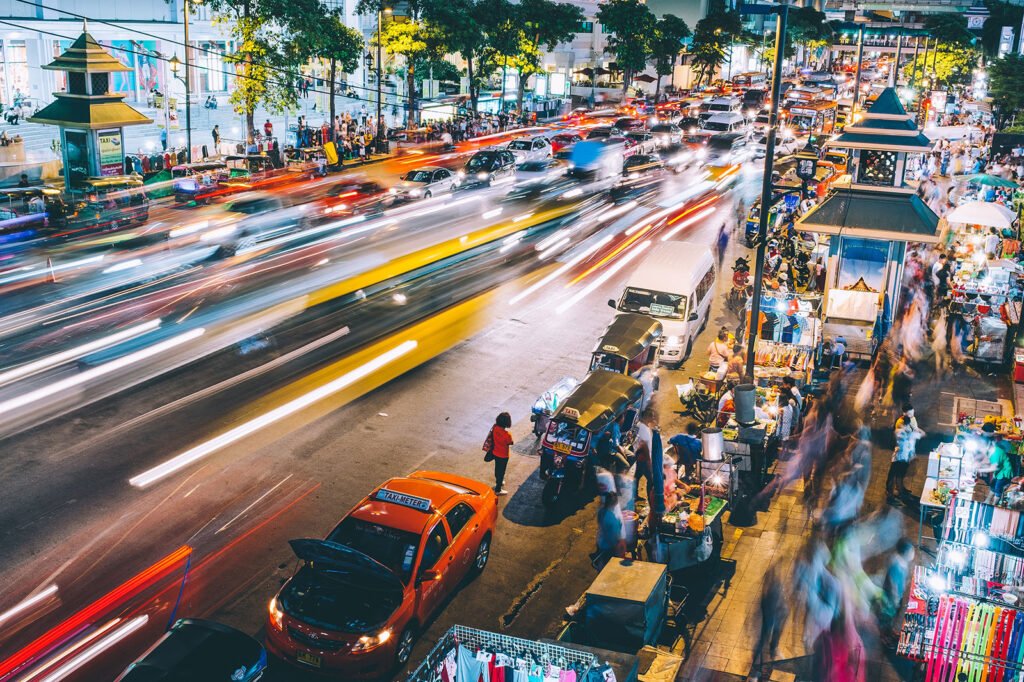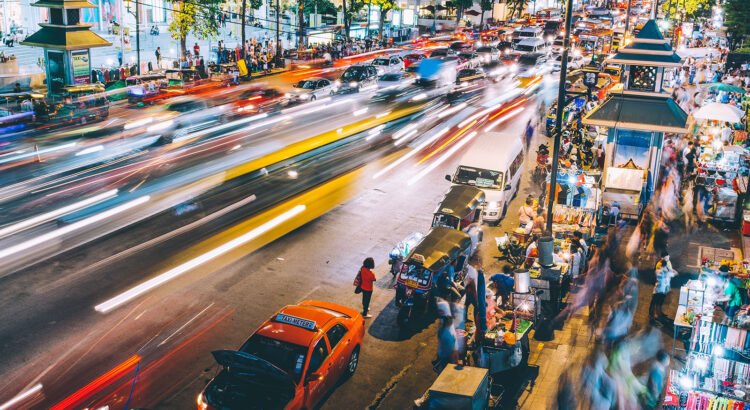
Exploring a new city is one of the most exciting parts of traveling. Whether you’re strolling through ancient alleyways in Rome, navigating the vibrant markets of Marrakech, or getting lost in the neon-lit streets of Tokyo, cities are hubs of culture, adventure, and inspiration. But with their energy and excitement also come risks—especially for travelers unfamiliar with their surroundings.
Urban areas can be unpredictable. Petty theft, scams, lost directions, cultural misunderstandings, and occasional dangers lurk behind the excitement. However, that doesn’t mean you should explore with fear. With the right mindset and some practical, street-smart strategies, you can roam confidently, embrace spontaneity, and still stay safe.
In this guide, we’ll walk through the most effective safety practices every traveler should know when exploring cities—whether solo, in a group, or with family.
1. Do Your Homework Before You Arrive
Your safety begins well before your feet touch the city streets.
a. Research Neighborhoods
Every city has areas best visited in daylight—or avoided altogether. Use forums, travel blogs, or government travel advisories to identify safe neighborhoods, tourist hotspots, and high-risk zones.
b. Know Local Laws and Customs
What may seem normal at home—like taking pictures of government buildings or public displays of affection—may be illegal or offensive in other countries. Understanding the cultural context is part of staying safe.
c. Save Key Contacts
Before your trip, save:
- The local emergency number (it’s not always 911)
- The address and number of your country’s embassy or consulate
- Hotel or accommodation contacts
2. Dress Smartly and Blend In
The goal is to avoid standing out as a tourist—especially in areas known for targeting visitors.
a. Avoid Flashy Items
Don’t wear expensive jewelry, designer logos, or large cameras around your neck. These items scream “tourist” and make you a target for pickpockets or scammers.
b. Follow Local Style
Dress like locals. In some cities, shorts and tank tops may attract unwanted attention, especially in conservative cultures. Neutral tones, comfortable walking shoes, and modest clothing often work best.
3. Master the Art of the Daypack
Your day bag is your mobile command center—keep it light, smart, and secure.
a. Use Anti-Theft Bags
Invest in a backpack or crossbody bag with lockable zippers, cut-proof straps, and hidden compartments.
b. Carry Only What You Need
Avoid carrying your passport unless absolutely necessary. Bring a photocopy instead and keep the original in a hotel safe. Carry limited cash, one card, and keep them in separate pockets.
c. Distribute Valuables
Split up your money and cards. Hide a backup card in your shoe or inner pocket just in case.
4. Stay Aware of Your Surroundings
Situational awareness is your best defense.
a. Watch for Distractions
Scammers often work in pairs—one distracts you while the other steals. Common distractions include people asking for signatures, showing you a map, or “accidentally” spilling something on you.
b. Don’t Zone Out
Avoid wearing both earbuds in public. Stay alert in crowded spaces like metros, markets, and festivals. Make eye contact, walk with purpose, and look confident even if you’re unsure of your direction.
5. Use Transportation Wisely
Transportation systems differ around the world—some are safe and efficient, others more chaotic or risky.
a. Only Use Registered Taxis or Rideshares
Use official taxi stands, apps like Uber/Bolt/Grab, or services recommended by your hotel. Avoid accepting unsolicited rides from strangers.
b. Stay Safe on Public Transit
Keep your bag in front of you, zipped shut, and hold it with both hands. Avoid empty train cars or standing near exits with your phone out.
c. Know Night Travel Limits
If possible, avoid traveling through unfamiliar areas late at night. Opt for well-lit, populated routes and avoid shortcuts through alleys or parks.
6. Protect Your Tech and Information
Your smartphone and personal data are just as valuable as your wallet.
a. Be Discreet With Electronics
Avoid using your phone openly in public in areas known for snatch thefts. Take photos quickly, then store your phone safely.
b. Use a VPN
When using public Wi-Fi in cafés, hotels, or airports, activate a VPN (Virtual Private Network) to protect your personal information.
c. Turn Off Auto-Connect
Prevent your devices from connecting automatically to unsecured networks, which hackers can exploit.
7. Recognize Common Tourist Scams
Familiarity with local scams helps you spot red flags.
Common Scams Include:
- The Bracelet Trick: Someone ties a “free” bracelet on your wrist and then demands money.
- The Fake Police: Scammers pose as police and demand to check your wallet or passport.
- The Overpriced Taxi: Drivers refuse to use meters or quote high prices.
- Petitions, Begging Children, or Flower Sellers: These tactics often serve as distractions for pickpocketing.
If something feels odd or too good to be true, walk away confidently.
8. Trust Your Instincts
When your intuition tells you something isn’t right, listen.
Whether it’s a stranger acting strangely, a street that feels too empty, or a situation that seems suspicious—it’s okay to remove yourself immediately. Your safety is more important than being polite.
9. Know How to Ask for Help
In emergencies or moments of confusion, you should know how to seek assistance.
a. Learn Key Phrases
Learn local words or phrases for help, emergency, police, or “I don’t understand.” A language app like Google Translate or Duolingo can help.
b. Approach the Right People
In public places, ask uniformed workers, shop staff, or families for help—not random strangers on the street.
c. Use Safety Apps
Apps like “bSafe,” “SmartTraveler,” and “TripWhistle” can connect you with emergency services, share your location with loved ones, or send SOS alerts.
10. Stay Connected
A lone traveler doesn’t have to be disconnected. Staying in touch can be a lifeline.
a. Share Your Itinerary
Let a friend or family member know where you’re going and when. Update them if your plans change.
b. Schedule Check-Ins
Set a daily check-in time with someone back home. A simple “I’m okay” message can offer peace of mind.
11. Stay Safe at Night
Cities often become more unpredictable after dark. Enjoy nightlife cautiously.
a. Don’t Drink Too Much
Know your limits and avoid accepting drinks from strangers. Always watch your drink being prepared.
b. Stick With Groups
Solo travelers should consider joining walking tours or group outings at night for safety.
c. Plan Your Way Home
Before going out, plan how you’ll get back to your hotel. Carry the address and keep enough money for a cab or rideshare.
12. Stay Safe in Accommodation
Whether staying in a hotel, Airbnb, or hostel, secure your belongings and your personal space.
a. Use Locks and Safes
Always lock your room door, even when you’re inside. Use safes or portable travel locks for valuables.
b. Check Fire Exits
Familiarize yourself with emergency exits and fire instructions in your building.
c. Keep Essentials Nearby at Night
Have your phone, a flashlight, and emergency contacts within reach in case of a power outage or emergency evacuation.
13. Solo Traveler Safety Tips
If you’re traveling alone, these tips become even more essential.
a. Stay Visible
Frequent busy areas rather than hidden spots or deserted neighborhoods.
b. Create “Check-In” Moments
Let hotel staff, tour guides, or friends know where you’re going.
c. Use Confidence As A Shield
Scammers prey on hesitation. Walk tall, look alert, and behave like you know where you’re headed—even if you don’t.
Conclusion: Confidence Through Awareness
Urban exploration is one of the great joys of travel. Cities pulse with life, culture, and surprises waiting around every corner. But to truly enjoy them, safety should be woven into your experience—not as a source of anxiety, but as a layer of empowerment.
When you approach travel with curiosity and caution, you unlock the best of both worlds: fearless adventure and peace of mind.
Remember, safety doesn’t mean paranoia—it means preparation. With the right streetwise strategies, you’ll be free to wander with confidence, explore deeply, and return with unforgettable stories rather than close calls.
So, step out and enjoy the cities of the world—but always, stay sharp, stay smart, and stay safe.




